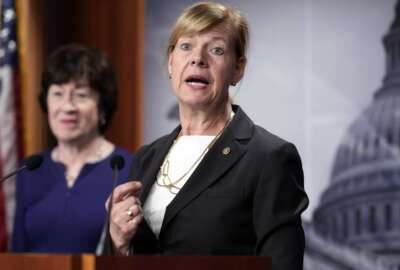By Jack Moore
Federal News Radio
With the space shuttle program at an end, there are many changes underway at NASA.
And those changes start at the top as the agency’s chief technologist, Dr. Bobby Braun, announced he would leave the aerospace agency later this month to return to a teaching position at the Georgia Institute of Technology.
He joined the Federal Drive for an exit interview to discuss what lies ahead for both NASA and him.
He discussed his role as chief technologist, some of the initiatives he’s most proud of and, with the space shuttle program now over, what NASA has planned for the future.
He called his NASA role “the greatest job” at the agency and the greatest job of his career.
“The chief technologist at NASA is concerned with the future,” he said — both the future of the agency, itself, and with space travel and aeronautics more broadly.
“As chief technologist for the past couple years, I’ve been able to dream about NASA’s future and help create programs to start making that future a reality today,” he added.
And despite the discussion of NASA’s dissipation as a force in the world of space travel, he said the agency “has a pretty bright future.”
He cited ongoing efforts involving the International Space Station as well as more ambitious projects involving deep space flight and a possible asteroid-landing.
Deciding whether and how to leave the agency is “something I’ve struggled with for some time, to be honest,” he acknowledged.
“I’m an engineer and I love representing the engineers that make NASA such a special place for this country,” he said.
However, when Braun accepted the position, it was for a two-year stint as part of an agreement the agency has with Georgia Tech.
Braun said now “it’s time to go home” — to his students and research program there as well as to his family.
The team he helped assemble and lead at NASA is now ready to take over, he added.
“I may have been the guy who initiated this program, but there’s a whole host of people here working with me that are making this program real and it’s time for them to take the program to the next level.”
Braun also addressed a recent National Academy of Sciences report that reported NASA’s technology base has been largely depleted and that current technologies are insufficient to complete many of the agency’s stated missions.
Braun said he didn’t disagree with the report.
“Over the past 10 years, NASA has become more focused on near-term goals in a rush to send humans back to the moon,” he said. “In doing so, NASA stopped making technology investments, even at a very low funding level.
Research and technology haven’t been sustained and “nurtured” as well as they should’ve been, he said.
But NASA’s technology investments are akin to a college savings. Even in tight financial times, it’s still important to save, he explained.
Copyright
© 2024 Federal News Network. All rights reserved. This website is not intended for users located within the European Economic Area.




